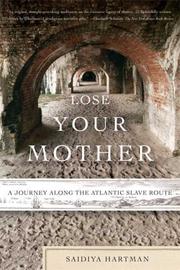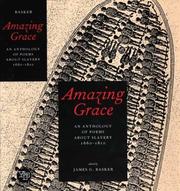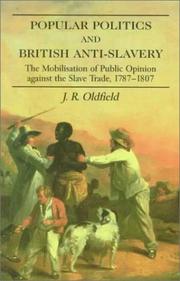| Listing 1 - 10 of 16 | << page >> |
Sort by
|
Book
ISBN: 9783631660249 3631660243 Year: 2015 Publisher: Frankfurt am Main Peter Lang Edition
Abstract | Keywords | Export | Availability | Bookmark
 Loading...
Loading...Choose an application
- Reference Manager
- EndNote
- RefWorks (Direct export to RefWorks)
linguistischer Wandel --- Sprachkontakt --- Sprachgeschichte --- transatlantischer Sklavenhandel --- Geschichte der Sklaverei --- (VLB-WN)1560: Hardcover, Softcover / Sprachwissenschaft, Literaturwissenschaft --- linguistischer Wandel. --- Sprachkontakt. --- Sprachgeschichte. --- transatlantischer Sklavenhandel. --- Geschichte der Sklaverei. --- (VLB-WN)1560: Hardcover, Softcover / Sprachwissenschaft, Literaturwissenschaft. --- Linguistischer Wandel. --- Transatlantischer Sklavenhandel. --- Portuguese language --- Spanish language --- African languages. --- Castilian language --- Romance languages --- Foreign words and phrases --- African influences. --- Foreign elements --- Conferences - Meetings --- African languages --- Foreign words and phrases&delete& --- African influences --- Foreign elements&delete&

ISBN: 0374531153 9780374531157 Year: 2008 Publisher: New York : Farrar, Straus and Giroux,
Abstract | Keywords | Export | Availability | Bookmark
 Loading...
Loading...Choose an application
- Reference Manager
- EndNote
- RefWorks (Direct export to RefWorks)
Traces the history of the Atlantic slave trade by recounting a journey the author took along a slave route in Ghana, vividly dramatizing the effects of slavery on three centuries of African and African-American history.
Slave trade --- Historic sites --- History. --- Hartman, Saidiya V. --- Travel --- Ghana --- Description and travel. --- History, Local. --- Historic sites. --- Slave trade. --- Travel. --- Sklavenhandel. --- History --- Geschichte. --- Ghana.
Book
ISBN: 9780197264782 0197264786 Year: 2011 Volume: 168 Publisher: Oxford [etc.] Oxford University Press
Abstract | Keywords | Export | Availability | Bookmark
 Loading...
Loading...Choose an application
- Reference Manager
- EndNote
- RefWorks (Direct export to RefWorks)
Slavery --- Slave insurrections --- Slave trade --- Esclavage --- Révoltes d'esclaves --- Esclaves --- History. --- History --- Histoire --- Commerce --- Sklavenhandel. --- Sklaverei. --- Economic aspects --- Environmental aspects --- Political aspects --- Afrika. --- Révoltes d'esclaves --- Slave rebellions
Book
ISBN: 9789023477044 9023477049 Year: 2014 Publisher: Amsterdam De Bezige Bij
Abstract | Keywords | Export | Availability | Bookmark
 Loading...
Loading...Choose an application
- Reference Manager
- EndNote
- RefWorks (Direct export to RefWorks)
Tussen 1612 en 1872 werden vanuit diverse Nederlandse forten aan de Afrikaanse Goudkust slaven verscheept naar Amerika. Beschrijving van het leven en de handel rond één van die forten, het kasteel van Elmina, en de discussie rond slavernij. Was dit fenomeen niet minstens zo Afrikaans als Europees?
History of the Netherlands --- Colonisation. Decolonisation --- Sociology of minorities --- anno 1700-1799 --- anno 1800-1899 --- anno 1600-1699 --- West Africa --- Vestingwerken. --- Slavenhandel. --- West-Indische Compagnie. --- Sklavenhandel. --- Elmina. --- Atlantisch gebied. --- Nederland. --- Ghana. --- Niederlande.
Book
ISBN: 9780198769941 0198769946 0191822728 0191082619 9780191082610 Year: 2018 Publisher: Oxford : Oxford University Press,
Abstract | Keywords | Export | Availability | Bookmark
 Loading...
Loading...Choose an application
- Reference Manager
- EndNote
- RefWorks (Direct export to RefWorks)
The orthodox view of slavery in the ancient Mediterranean holds that Greece and Rome were its only 'genuine slave societies', that is, societies in which slave labour contributed significantly to the economy and underpinned the wealth of elites. Other societies, traditionally labelled 'societies with slaves', are thought to have made little use of slave labour and therefore have been largely ignored in recent scholarship. This volume presents a radically differentview of the ancient Eastern Mediterranean world, showing that elite exploitation of slave labour in Greece and the Near East shared some fundamental similarities, although the degree of elite dependence on slaves varied from region to region. Whilst slavery was indeed particularly highly developed inGreece and Rome, it was also economically entrenched in Carthage, and played a not insignificant role in the affairs of elites in Israel, Assyria, Babylonia, and Persia. The differing degrees to which Eastern Mediterranean elites exploited slave labour represents the outcome of a complex interplay between cultural, economic, political, geographical, and demographic factors.Proceeding on a regional basis, this book tracks the ways in which local conditions shaped a wide variety of Greek and Near Eastern slave systems, and how the legal architecture of slavery in individual regions was altered and adapted to accommodate these needs. The result is a nuanced exploration of the economic underpinnings of Greek elite culture that sets its reliance on slavery within a broader historical context and sheds light on the complex circumstances from which itemerged.
Slavery --- History. --- Slaves --- Social conditions --- Sklavenhandel. --- Sklaverei. --- Slavery. --- rabszolgaság --- History --- Történelem --- To 622. --- Greece --- Greece. --- Griechenland --- Levante. --- Middle East --- Middle East. --- Slave trade --- Arab countries --- E-books --- Enslaved persons --- Social conditions.

ISBN: 0300091729 9780300091724 Year: 2002 Publisher: New Haven : Yale University Press,
Abstract | Keywords | Export | Availability | Bookmark
 Loading...
Loading...Choose an application
- Reference Manager
- EndNote
- RefWorks (Direct export to RefWorks)
This landmark volume is the first anthology of poetic writings on slavery from America, Britain and the Atlantic during the Englightenment - the crucial period that saw the height of the slave trade but also the origins of the anti-slavery movement. "This volume is the first anthology of poetic writings on slavery from America, Britain, and around the Atlantic during the Enlightenment - the crucial period that saw the height of the slave trade but also the origins of the anti-slavery movement. Bringing together more than four hundred poems and excerpts from longer works that were written by more than two hundred and fifty poets, both famous and unknown, the book charts the emergence of slavery as part of the collective consciousness of the English-speaking world. The book includes: poems by forty women, ranging from abolitionists Hannah More and Mary Robinson to Frances Seymour, the Countess of Herford; works by more than twenty African or African American poets, including familiar names (Phillis Wheatley), intriguing figures (Afro-Dutch Latin scholar Johannes Capitein), and newly rediscovered black poets (an anonymous veteran of the Revolutionary War); and poetry by such canonical writers as Dryden, Defoe, Pope, Johnson, Blake, Boswell, Burns, Wordsworth, and Coleridge." "The poems speak of the themes of slavery: capture, torture, endurance, rebellion, thwarted romances, and spiritual longing. They also raise intriguing questions about the contradictions between cultural attitudes and public policy of the time. Writers such as these, suggests editor James Basker, were not complicit in the imperial project or indifferent about slavery but actually laid the groundwork for the political changes that would follow."--Jacket.
American poetry.
---
American poetry.
---
English poetry
---
English poetry
---
English poetry
---
English poetry
---
English poetry.
---
Lyrik.
---
Sklavenhandel

ISBN: 9780325070490 0325070490 0325070504 Year: 2003 Publisher: Portsmouth (N.H.) : Heinemann,
Abstract | Keywords | Export | Availability | Bookmark
 Loading...
Loading...Choose an application
- Reference Manager
- EndNote
- RefWorks (Direct export to RefWorks)
Balanta (African people) --- Balanta (African people) --- Balanta (African people) --- Balante (volk). --- Oral tradition --- Rice trade --- Sklavenhandel. --- Slave trade --- Slavenhandel. --- Agriculture. --- History. --- Social conditions. --- History --- History --- History --- Atlantic Coast (Guinea-Bissau) --- Guinea-Bissau. --- History.

ISBN: 9781136295843 1136295844 0714644625 9780714644622 Year: 1998 Publisher: London : Frank Cass,
Abstract | Keywords | Export | Availability | Bookmark
 Loading...
Loading...Choose an application
- Reference Manager
- EndNote
- RefWorks (Direct export to RefWorks)
Abolitionisme. --- Abolitionismus. --- Abschaffung. --- Antislavery movements --- Antislavery movements. --- Esclavage --- Esclavage --- Mouvements antiesclavagistes --- Opinion publique --- Propaganda. --- Public opinion --- Public opinion. --- SOCIAL SCIENCE --- Sklavenhandel. --- Sklaverei. --- Slave trade --- Slave trade --- Öffentliche Meinung. --- Abolition --- Opinion publique --- Slavery. --- Public opinion --- Public opinion. --- Great Britain. --- Gro�britannien.
Book
ISBN: 3406480160 Year: 2003 Publisher: München Verlag C.H. Beck
Abstract | Keywords | Export | Availability | Bookmark
 Loading...
Loading...Choose an application
- Reference Manager
- EndNote
- RefWorks (Direct export to RefWorks)
Sklavenhandel --- Voodoo --- Iwa --- Trance --- Initiation --- Rituale --- Santeria --- orisha --- egun --- Candomblé --- orixa --- Umbanda --- Spiritismus --- Kardecismo --- Religion als Heilkunst --- Synkretismus --- afroamerikanischen Religionen --- USA --- das American Yoruba Movement --- Religion der lukumi --- das Orakel
Book
ISSN: 24054585 ISBN: 9789004364813 9004398791 9004364811 9789004398795 9789004447240 Year: 2019 Volume: 8 Publisher: Leiden ; Boston : Brill,
Abstract | Keywords | Export | Availability | Bookmark
 Loading...
Loading...Choose an application
- Reference Manager
- EndNote
- RefWorks (Direct export to RefWorks)
In 'Possessed by the Right Hand', the first comprehensive legal history of slavery in Islam ever offered to readers, Bernard K. Freamon, an African-American Muslim law professor, provides a penetrating analysis of the problems of slavery and slave-trading in Islamic history. After examining the issues from pre-Islamic times through to the nineteenth century, Professor Freamon considers the impact of Western abolitionism, arguing that such efforts have been a failure, with the notion of abolition becoming nothing more than a cruel illusion. He closes this ground-breaking account with an examination of the slaving ideologies and actions of ISIS and Boko Haram, asserting that Muslims now have an important and urgent responsibility to achieve true abolition under the aegis of Islamic law.
Slavery and Islam --- Slavery --- Slavery (Islamic law) --- Slavery - Islamic countries --- Islamic law --- Abolition of slavery --- Antislavery --- Enslavement --- Mui tsai --- Ownership of slaves --- Servitude --- Slave keeping --- Slave system --- Slaveholding --- Thralldom --- Crimes against humanity --- Serfdom --- Slaveholders --- Slaves --- Islam and slavery --- Slavery (Islam) --- Islam --- Enslaved persons --- Esclavage --- Esclavage (Droit islamique) --- Sklaverei --- Sklavenhandel --- Islamisches Recht --- Rechtskultur --- Slavery and Islam. --- Aspect religieux --- Islam. --- Droit islamique --- Islamic countries --- Islamische Staaten
| Listing 1 - 10 of 16 | << page >> |
Sort by
|

 Search
Search Feedback
Feedback About UniCat
About UniCat  Help
Help News
News